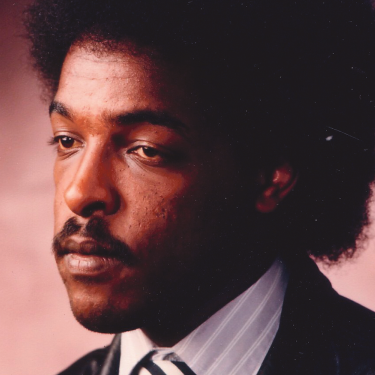Sixteen years of campaigning for Dawit Isaak

At a ceremony in Jakarta today to mark World Press Freedom Day, UNESCO is awarding its Guillermo Cano World Press Freedom Prize to Dawit Isaak, a journalist with Swedish and Eritrean dual nationality who has been detained in the most appalling conditions in Eritrea since 2001.
Reporters Without Borders (RSF) has campaigned incessantly for Isaak’s release for the past 16 years and is today launching a petition with the aim of sustaining this campaign.
There has been no news of Isaak for the past 12 years. He is being held incommunicado, without access to his family or lawyers, because he did his job as a reporter and covered the political debate in Eritrean society 16 years ago. Like the ten other journalists arrested in 2001, he is regarded by the government as a terrorist.
Information obtained by RSF suggests that seven of these journalists have died in detention. According to the account of a former prison guard in 2010, the last time Isaak was seen alive, the journalists are kept in inhuman conditions, handcuffed, isolated and exposed to terrible heat.
For 16 year, RSF has worked constantly for the release of all of these unjustly detained journalists and, on World Press Freedom Day today, is launching a petition to maintain the pressure.
“The situation in Eritrea is intolerable,” said Cléa Kahn-Sriber, the head of RSF’s Africa desk. “For 16 years, this country has had no free press, its citizens have lived in terror and its journalists have been unable to work freely and have even been threatened while working for the state media.
“The situation is more critical than ever but the European Union is taking a conciliatory line with President Issayas Afeworki’s regime, above all out of concern about the flood of Eritrean refugees fleeing the terrible persecution and arriving on Europe’s shores. RSF and other NGOs have been campaigning for years but nothing will change without a clear commitment from EU member states, the UN and the African Union.”
Action instead of words?
Together with his family, RSF has been battling to draw attention to Isaak’s fate and obtain his release for 16 years. After an initial petition in 2002, many press communiqués and several appeals to the European Parliament, RSF sent an appeal to Eritrea’s constitutional court in 2011, affirming the illegality of Isaak’s detention, but never received a response.
In 2012, RSF referred the case to the African Commission on Human and Peoples’ Rights, which asked Eritrea to free the journalists or guarantee them due process. Eritrea has never responded to this request either. RSF will raise the question at the Commission’s next session on 8 May in Niamey, Niger.
During Eritrea’s Universal Periodic Review by the UN Human Rights Council, member states have made recommendations on the lack of media freedom, the complete control of state journalists and the inhuman treatment of imprisoned journalists in complete violation of all the rules of international law. But the Eritrean government has systematically ignored these recommendations.
In 2015, RSF referred Isaak’s case to the UN Working Group on Enforced or Involuntary Disappearances.
A UN special report on the human rights situation in Eritrea, to which RSF contributed, concluded in June 2016 that crimes against humanity were taking place in Eritrea and asked the International Criminal Court to take up the case. No action has so far been taken.
There have been other initiatives. In Sweden, RSF filed complaints against Eritrean government officials on Isaak’s behalf but the prosecutor refused to pursue the case. In June 2016, RSF wrote to President Afeworki asking to meet with Isaak in prison and thereby obtain proof that he is still alive. Afeworki personally acknowledged receipt of the letter but never granted the request.
There are no longer any independent media outlets in Eritrea, which is ranked 179th out of 180 countries in RSF’s 2017 World Press Freedom Index. Only the state radio stations, the government newspaper and state-owned Eri TV can report what is going on inside Eritrea.
Several foreign media outlets were allowed into Eritrea last year for a guided tour that was always the same. They were closely escorted and were unable to talk freely with members of the public.



